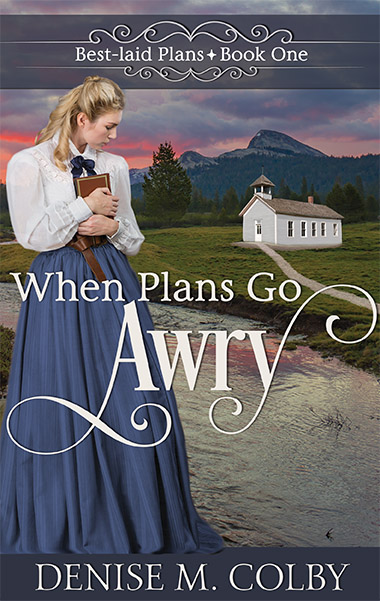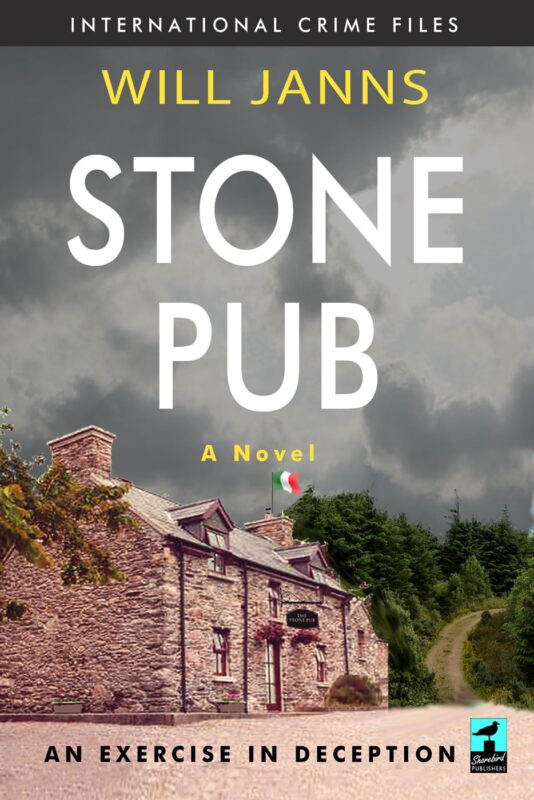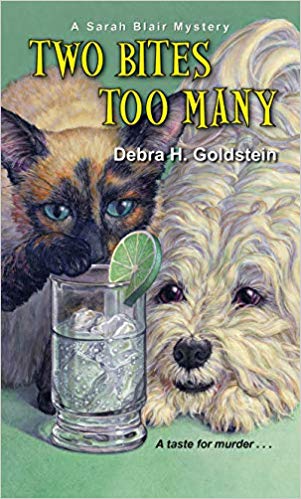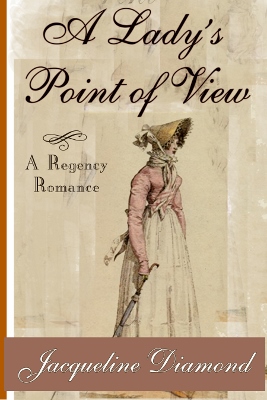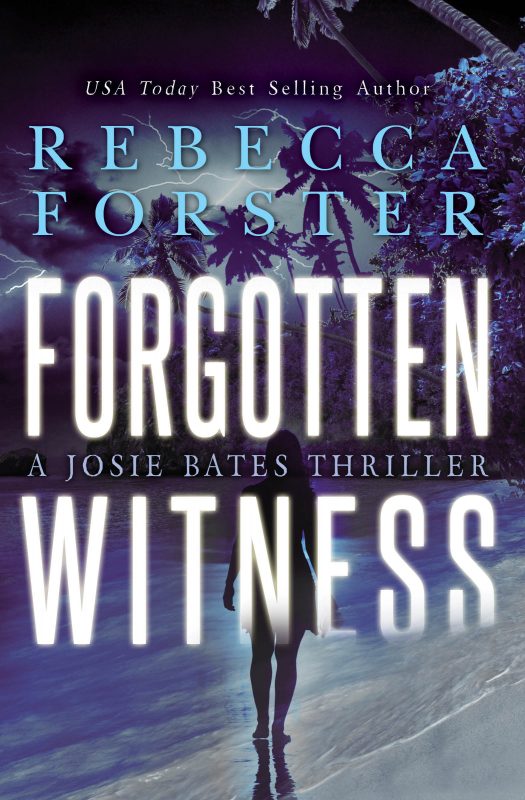Writing the Federal Agent
January 24, 2023 by marianne h donley in category Ages 2 Perfection Online Class, Apples & Oranges by Marianne H. Donley, Events, Online Classes tagged as A2P Online Class, FBI, Federal Agents, jennifer D. Bokal, online writing class, research, Research for Writers, Writing Federal Agents
Writing the Federal Agent
Presented by: John Bokal with Jennifer Bokal
Date: February 1 – 28, 2023 (one month)
Registration Closes: February 16, 2023
Pricing: A2P Member fee: $5
Non-A2P Member fee: $10
About the Workshop:
There’s no denying it—federal law enforcement agents and agencies have sparked the imagination of readers and writers for generations. But how can a writer really understand what it’s like to be a part of the law enforcement community?
Join retired FBI Special Agent, John P. Bokal, Jr. to discuss the various agencies tasked with investigating federal crimes and what it’s like to be a federal agent. His wife, multi-published and best-selling author Jennifer D. Bokal, will then provide exercises to help participants develop their own realistic federal agent characters.
About the Presenters:
Jennifer D. Bokal is the author of more than 20 novels and novellas. Her books include the best-selling Ancient World Historical Romance, The Gladiator’s Mistress, and novellas from the popular Contemporary Western series, Bear Creek Rodeo. But Jen spends most of her time writing for Harlequin’s Romantic Suspense line.
Her husband of more than 25 years, John P. Bokal, Jr., is retired FBI Special Agent. During his 30 years with the FBI, John worked a variety of cases including kidnappings, missing persons, and bank fraud. Jen and John live in upstate NY. They have three grown daughters and have filled their “empty nest” with several fur babies.
The Fun of Being A Writer by Linda O. Johnston
August 6, 2022 by Linda O. Johnston in category Pets, Romance & Lots of Suspense by Linda O. Johnston tagged as Dogs!, Plotting, research, vacations, writing
What’s the fun of being a writer? Everything!
And part of that includes the fact that writing is always there. It becomes part of you. At least it has with me. Everything I do, everywhere I go, my writerness is part of it. And yes, that’s an unusual word although when I Googled it, other people have apparently used it, too.
I was on a cruise to Alaska last week with family and friends. It was lots of fun. We sailed near land going north, then south through the Inside Passage, visited several cities, took a few tours, and enjoyed the onboard food and entertainment. That entertainment sometimes included dogs, and you can imagine how much I liked that.
I particularly enjoyed the wildlife we saw, including young and adult bald eagles, other birds including those that flew over and sometimes dived into water like marbled murrelets, a few bears on the shoreline in the distance, some spouting whales, including humpbacks, and small breaching dolphins.
We got to wade in the water in the middle of a river—because, as you might surmise, that river wasn’t full of water.
We visited Victoria, British Columbia, Canada, and took a tour that included visiting a formerly private castle.
And, oh yes, I did some writing and editing . . . and came up with an idea for another mystery series.
Will I ever write it? Who knows? But plotting and researching it will definitely be enjoyable. Plotting is who I am, and my subconscious is always at work.
And yes, that’s part of the fun of being a writer.
~Linda
Make Mine Slang by Jenny Jensen
August 19, 2021 by Jenny Jensen in category On writing . . . by Jenny Jensen tagged as characterization, language, Planning, research, Slang, Writer's Toolbox
This character, Tall T Reynolds, is growing in my mind. I can see him tanned and raw and a bit dusty. I know his world is the 1940’s rural west and I know he’s going to briefly meet Lottie, a beautiful girl in a gleaming open topped coupe. Their brief exchange will never leave his mind. Soon after, Tall T will go off to war in Europe. He and Lottie will meet again in a most unexpected way.
I want these two MCs to be drawn as very different in all ways but the heart. I want to show those differences subtly and naturally. I want to tell the story mostly in dialog, no long narratives, no narrative tells. I know that means voice and tone will have to be pitch perfect so it’s language that shows their differences, that makes each wholly human and credible. I thought about using dialect but rejected the idea. I don’t trust my skills to pull that off successfully. Besides, they are both smart and fairly well educated. This is not a rustic pauper gets the princess story. Still, they are from very different worlds – until they’re not.
After rummaging about a bit in the writer’s toolbox, I’m thinking slang as a way to initially set them apart and ultimately bring them together. Slang is an interesting critter. It’s a very flexible tool. It’s hard to pin down what is slang and what isn’t. Slang changes so fast. Yesterday’s ‘far out’ is today’s ‘snatched’, but it’s pretty clear what slang does for us. The casual use of slang terms show we’re in the know, we belong to that group who understands what it is to ‘I oop’. More to my purposes, slang is a shared affinity of age and disposition and attitude.
Slang can be subversive, playful, derisive, affectionate, even endearing – all such very human qualities – and human is what I want to show in circumstances that aren’t all that humane. Ever changing, almost updating itself to fit shifting circumstances slang morphs from common terms to become familiar to a community who is living and sharing shifting circumstances. How else explain today’s use of ‘ghost’? Slang can turn meaning topsy turvy, assigning an opposite meaning to words – an effective response to a world that feels turned upside down. To say you ‘destroyed’ something today certainly doesn’t mean to me what it means to a teen.
Because slang is a hallmark of a shared, exclusive world it’s the perfect devise to reinforce the journey of Tall T and Lottie through the chaos of a world war to a shared reality. They will be tested in ways they’ve never imagined in a world where familiar conventions don’t always apply and time can be frightfully short. At their first meeting, Lottie’s language will baffle Tall T; he will know from that brief exchange that they are from very different worlds. By the end, they will share an unspoken understanding of how fubar life can be. They’ll both know the world is cockeyed and with one exchange of peepers they’ll know where to meet because they have all the dope on the good places. They are people with plenty of moxie who become each other’s killer diller.
I will be careful though. I don’t want them to sound like they’re trying too hard to be cool, or are too stupid to express themselves in any other way. I want to salt the slang effectively, add just that kick of heat a touch of chili adds to a good stew. Like seasoning, I’m going to need a deft hand. I can imagine how clumsy a slang word could feel, or how tiresome the overuse could become. There’s a lot of revision ahead for me if I’m going to Keep it 100. Forewarned is forearmed. I’ll stop beating my gums now and immerse myself in the slang of The Greatest Generation. Roger. Wilco.
A Bad Moon Rising
August 13, 2021 by Bethlehem Writers Group in category From a Cabin in the Woods by Members of Bethlehem Writers Group, Writing tagged as bad moon, details, research, writing craft
By Dianna Sinovic
It must have been at least one in the morning, the inkiness of the night now washed out by the full moon cresting the horizon. Sophie sat up and felt around her for her shoes. She’d been stargazing on the hill, the grassy spot beyond the embrace of the forest. With the moon up, the stars would soon fade until they were too faint to see. Sometimes she felt like that, diminished, dismissed.
Except that the full moon doesn’t rise at 1 a.m. or anywhere near that time. A full moon appears as the sun is setting, giving its full face to be illuminated.
Jeremy was hopelessly lost, and night was falling. He was walking on what seemed like an endless plain of snow, every direction the same. Zipping up his jacket until it was at his chin, he wished he’d remembered his watch cap. Already his ears felt numb. The sun was now just an orange glow on the horizon, and in the eastern sky, the slender form of a crescent moon had risen. He headed in that direction.
Except that a crescent moon doesn’t rise at sunset. A slender crescent is either in the eastern sky as the sun comes up. (It often shares the sky with the planet Venus, the “morning star.”) Or it’s in the western sky, following the sun down.
It’s easy to get the sun’s position correct when you write a scene. It rises in the morning and it sets in the evening. And on sweltering summer days it’s usually right overhead.
But the moon follows a different time keeper. And authors who don’t check the phases of the moon before adding them to their fiction risk yanking the reader out of the story. I have been stopped cold in otherwise compelling scenes by a moon depicted in a way that could never happen.
It doesn’t matter where in the world you set your story, the same astronomical parameters apply. (OK, the poles are different, both for the moon’s and the sun’s appearance.) The details aren’t hard to master. There are websites (NASA is an example) that will spell out the phases of the moon for you.
So when you’re fact-checking your draft, don’t forget to check the moon. Us astronomy geeks will thank you.
Of course, if you’ve set your story on another world, none of this applies. Instead, just be consistent with the rules of that world or universe. Double moons might be a nice touch.
Books by BWG
In Praise of . . .by Jenny Jensen
April 19, 2021 by Jenny Jensen in category On writing . . . by Jenny Jensen tagged as googling, Internet, promoting, readers, research
A simple Internet search can become a journey down the rabbit hole. A phrase or a word catches my eye, I click and find myself wondering down a path light years from the original intent. I was looking for info on clay pot cooking and got entranced by all the entries about things people are in praise of. Not sure how I got there, it’s a Google thing, but I couldn’t look away; all those heart felt testimonials extolling an incredible array of individual passions.
I was delighted by a man’s elegant praise of Velcro (who could argue with that?), an oratory on the simplicity of the ten penny nail (it really is an elegant and useful item), a poetic discourse on the play of sunlight on soap bubbles in the kitchen sink (I’ll take her word for it). The essays in praise of the rubber band, the sound of a child’s heartbeat in a quiet moment, the meditative smell of a crackling fire on a cold night all touched a universal human note—and I asked what I am in praise of.
Answer: writers. I write in praise of writers. I work with authors. I know something of the blood, sweat and tears invested in the books that are my passion to read. Writers are people with such a strong drive to tell stories they dive into unchartered waters and do it—despite the requirements of life. Writing is a full time occupation for a rare few. For most, the act of putting pen to paper is precious time carved out between client conferences, parenting, shift schedules, basic survival—the business of life. Amazing, praiseworthy.
Every book began as a spark in the mind of a writer. Might be an event, or a word overheard or grandmother’s lace collar that ignited the spark. With trial and error that spark becomes a premise to be populated with characters and action and goals. With more trial and error a burgeoning universe grows into a draft. More trial and error—okay, call it what it is—revisions and rewrites. Then more of same. Finally, a deep breath and first cautious preview. Writers group, spouse, beta reader, editor; it doesn’t matter who, the writer bears their soul. Feedback is absorbed (emotionally, technically, inspirationally), and it’s back to revise and rewrite, until the whole tough process results in the best effort of the writer.
That journey from idea to finished book is praiseworthy enough. That it’s just the beginning of a new sweaty effort is a fact. A book isn’t alive without readers. Reaching those readers is the next act. Even with a traditional publisher every writer has to promote their work — a fact even more vital for Indie authors. How else can the reader find your book among the 1100 new postings per day? Nothing makes me sadder than to have a client hang up their keyboard after publishing because sales are few to none. These are wonderful books, I know they are, but the author made no effort to promote. No one found the work. That wonderful book never stood a chance.
The investment of writing a book is a labor of love. Promoting and selling the book is just hard work. The effort begins with well-chosen genre categories and killer key words. An educated approach to pricing techniques, a website, blog and social media are promotional gold. Reviews are essential; consistency is key. Every author must invest the sweat equity needed to allow people to find their book. Fortunately, hundreds of Indie pros share promotional know-how, experiences and techniques on line, a lot of it free.
When I have found that ‘just right’ book I can snug up the Velcro on my slippers, hang my troubles on the ten penny nail, drain the supper dish soap and with the kid sit before the fire and travel wherever those pages take me. I am in praise of writers.
2 0 Read more
Affiliate Links
A Slice of Orange is an affiliate with some of the booksellers listed on this website, including Barnes & Nobel, Books A Million, iBooks, Kobo, and Smashwords. This means A Slice of Orange may earn a small advertising fee from sales made through the links used on this website. There are reminders of these affiliate links on the pages for individual books.
Search A Slice of Orange
Find a Column
Archives
Featured Books
TWO BITES TOO MANY
Far from a domestic goddess, Sarah Blair would rather catch bad guys than slave over a hot stove. But when a dangerous murder boils over in Wheaton, Alabama, catching the killer means leaving her comfort zone …
More info →A LADY’S POINT OF VIEW
Being nearsighted in Regency London isn’t a crime—but it feels like one to a lady in disgrace.
More info →FORGOTTEN WITNESS
A madman's ramblings, a government's secrets and a personal pain send Josie Bates into hell on earth.
More info →Newsletter
Contributing Authors
Search A Slice of Orange
Find a Column
Archives
Authors in the Bookstore
- A. E. Decker
- A. J. Scudiere
- A.J. Sidransky
- A.M. Roark
- Abby Collette
- Alanna Lucus
- Albert Marrin
- Alice Duncan
- Alina K. Field
- Alison Green Myers
- Andi Lawrencovna
- Andrew C Raiford
- Angela Pryce
- Aviva Vaughn
- Barbara Ankrum
- Bethlehem Writers Group, LLC
- Carol L. Wright
- Celeste Barclay
- Christina Alexandra
- Christopher D. Ochs
- Claire Davon
- Claire Naden
- Courtnee Turner Hoyle
- Courtney Annicchiarico
- D. Lieber
- Daniel V. Meier Jr.
- Debra Dixon
- Debra H. Goldstein
- Debra Holland
- Dee Ann Palmer
- Denise M. Colby
- Diane Benefiel
- Diane Sismour
- Dianna Sinovic
- DT Krippene
- E.B. Dawson
- Emilie Dallaire
- Emily Brightwell
- Emily PW Murphy
- Fae Rowen
- Faith L. Justice
- Frances Amati
- Geralyn Corcillo
- Glynnis Campbell
- Greg Jolley
- H. O. Charles
- Jaclyn Roché
- Jacqueline Diamond
- Janet Lynn and Will Zeilinger
- Jaya Mehta
- Jeannine Atkins
- Jeff Baird
- Jenna Barwin
- Jenne Kern
- Jennifer D. Bokal
- Jennifer Lyon
- Jerome W. McFadden
- Jill Piscitello
- Jina Bacarr
- Jo A. Hiestand
- Jodi Bogert
- Jolina Petersheim
- Jonathan Maberry
- Joy Allyson
- Judy Duarte
- Justin Murphy
- Justine Davis
- Kat Martin
- Kidd Wadsworth
- Kitty Bucholtz
- Kristy Tate
- Larry Deibert
- Larry Hamilton
- Laura Drake
- Laurie Stevens
- Leslie Knowles
- Li-Ying Lundquist
- Linda Carroll-Bradd
- Linda Lappin
- Linda McLaughlin
- Linda O. Johnston
- Lisa Preston
- Lolo Paige
- Loran Holt
- Lynette M. Burrows
- Lyssa Kay Adams
- Madeline Ash
- Margarita Engle
- Marguerite Quantaine
- Marianne H. Donley
- Mary Castillo
- Maureen Klovers
- Megan Haskell
- Melanie Waterbury
- Melisa Rivero
- Melissa Chambers
- Melodie Winawer
- Meriam Wilhelm
- Mikel J. Wilson
- Mindy Neff
- Monica McCabe
- Nancy Brashear
- Neetu Malik
- Nikki Prince
- Once Upon Anthologies
- Paula Gail Benson
- Penny Reid
- Peter J Barbour
- Priscilla Oliveras
- R. H. Kohno
- Rachel Hailey
- Ralph Hieb
- Ramcy Diek
- Ransom Stephens
- Rebecca Forster
- Renae Wrich
- Roxy Matthews
- Ryder Hunte Clancy
- Sally Paradysz
- Sheila Colón-Bagley
- Simone de Muñoz
- Sophie Barnes
- Susan Kaye Quinn
- Susan Lynn Meyer
- Susan Squires
- T. D. Fox
- Tara C. Allred
- Tara Lain
- Tari Lynn Jewett
- Terri Osburn
- Tracy Reed
- Vera Jane Cook
- Vicki Crum
- Writing Something Romantic
Affiliate Links
A Slice of Orange is an affiliate with some of the booksellers listed on this website, including Barnes & Nobel, Books A Million, iBooks, Kobo, and Smashwords. This means A Slice of Orange may earn a small advertising fee from sales made through the links used on this website. There are reminders of these affiliate links on the pages for individual books.












































